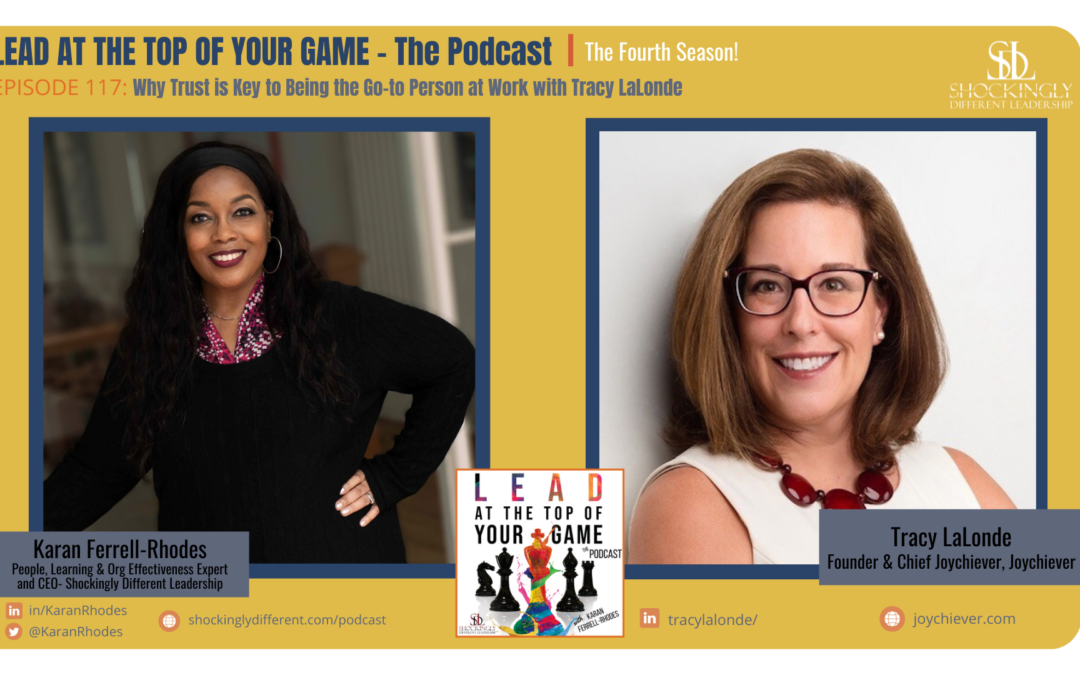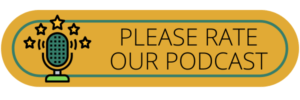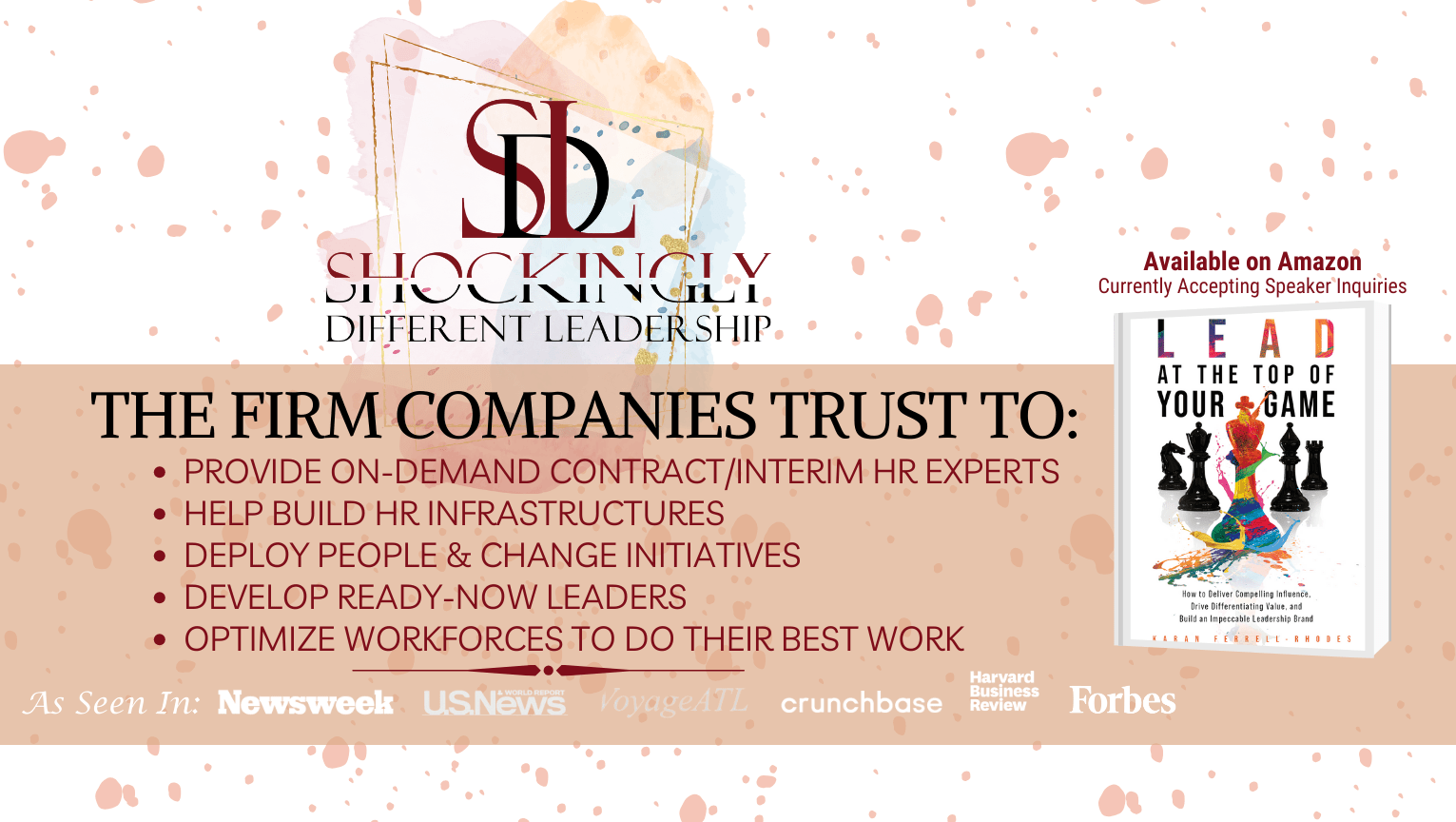IN THIS EPISODE, KARAN FERRELL-RHODES INTERVIEWS TRACY LALONDE.
Tracy joins us today to discuss the complexities of trust in professional environments. She explores whether trust should be earned or given, emphasizing small, intentional steps to build it, especially in remote work settings. She also outlines six key elements of trust and the six common pitfalls that erode it.
Tracy also shares her framework for evaluating mistakes and repairing broken trust. The conversation highlights trust’s role in leadership, employee engagement, and business success. She concludes by emphasizing trust as a skill and advocating for “courageous agility” in career growth and leadership.
Tracy LaLonde is the founder of Joychiever and the author of “Trust Me” and “The Joychiever Journey.“
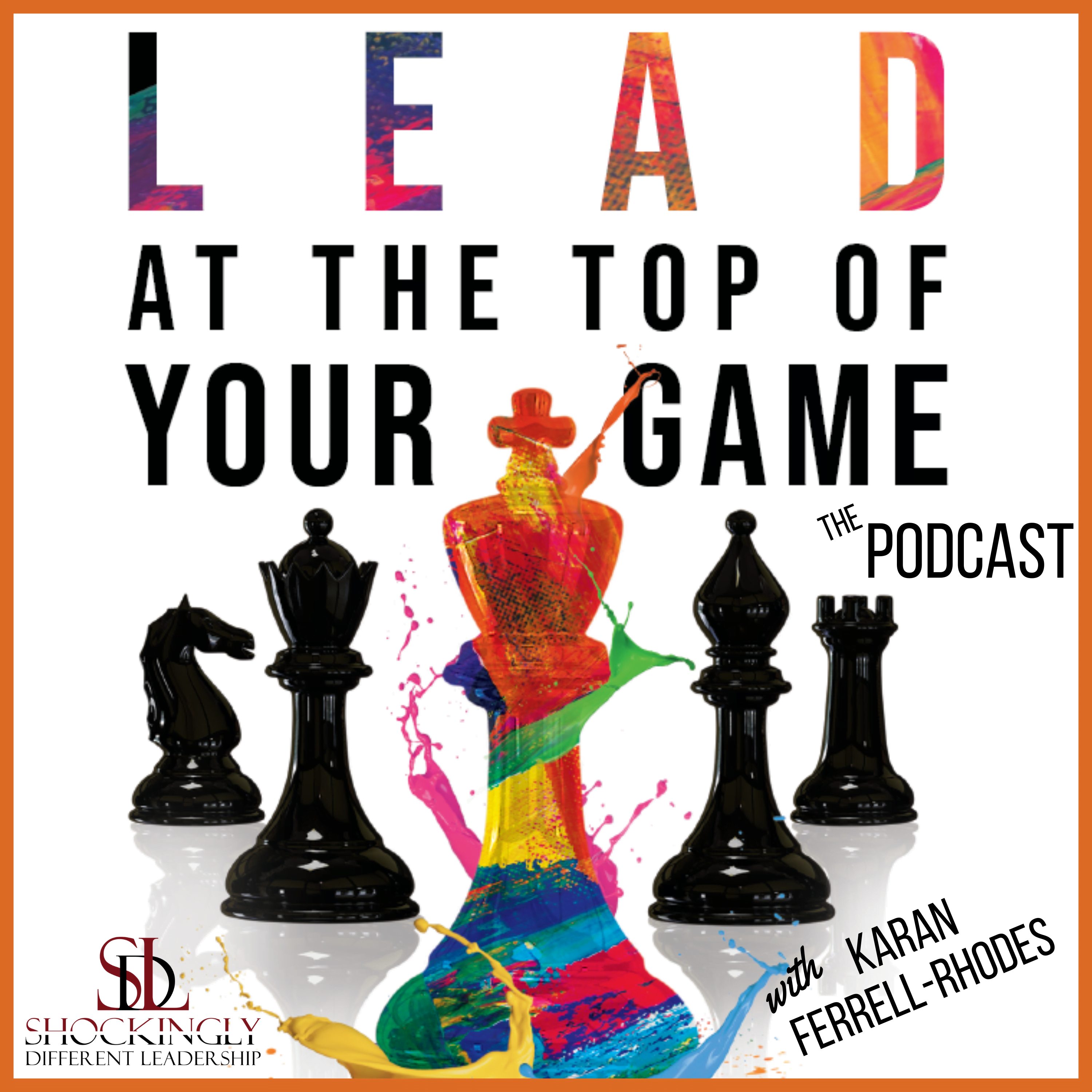
Posted by
SDL Media Team
Rather view our video podcast?

WHAT TO LISTEN FOR:
- What is the debate on whether trust should be earned or given?
- How can small steps help build trust over time?
- What are the six elements of trust outlined by Tracy?
- What are some common pitfalls that erode trust?
- How do we evaluate mistakes when it comes to trust?
- What are the key differences in building trust for executive leaders?
- Why is trust a skill rather than just a character trait?
- How does management style impact employee engagement and burnout?
“Trust is a physiological experience.”
FEATURED TIMESTAMPS:
[03:01] Tracy’s Personal Life
[06:42] Building Trust: Earned vs. Given
[10:26] Elements of Trust and Common Trust Pitfalls
[14:38] Handling Mistakes and Repairing Trust
[18:33] Trust in Executive Leadership
[19:49] Signature Segment: Tracy’s entry into the LATTOYG Playbook: Surprising Insights on Trust
[21:40] Joychiever’s Services and Target Market
[22:58] Engagement and Manager Training
[24:59] Signature Segment: Tracy’s LATTOYG Tactic of Choice: Leading with Courageous Agility

ABOUT TRACY LALONDE
With 30+ years in training, consulting, and professional development, Tracy LaLonde’s courses, keynotes, and guidance propel professionals to success. From her early days in the consulting industry to her transition to the legal field, Tracy’s career has always been focused on helping others grow.
Tracy is the author of The Joychiever Journey: Alleviate Burnout and Design Your Life for More Joy. This roadmap helps cultivate a better work-life balance, setting the stage for a happier and more fulfilling career.
Her forthcoming book, Trust Me: The Insider’s Guide to Being a Go-To Person at Work, prepares readers to elevate their standing and effectiveness.
LINKS FOR TRACY:
- Website: joychiever.com
- LinkedIn: linkedin.com/in/tracylalonde/
PEOPLE AND RESOURCES MENTIONED:
- Tracy’s Books: joychiever.com/shop
ADDITIONAL RESOURCES FOR YOU:


Episode Sponsor
SDL is the go-to firm companies trust when needing to:
- supplement their in-house HR teams with contract or interim HR experts
- implement leadership development programs that demonstrate an immediate ROI and impact on the business

Episode 117 | Why Trust is Key to Being the Go-to Person at Work with Tracy LaLonde
Tracy LaLonde 00:00
It just really became apparent to me how often we talk about that trust is important, but yet there’s not a lot of opportunities to learn how to do it. You know, proactively, really. I mean, we’re told what not to do, but there’s not very many resources about how to proactively build trust. And that is really what inspired me to write this book and create a presentation around it.
Voiceover 00:03
Welcome to the lead at the top of your game podcast where we equip you to more effectively lead your seat at any employer, business or industry in which you choose to play. Each week, we help you sharpen your leadership acumen by cracking open the playbooks of dynamic leaders who are doing big things in their professional endeavors. And now your host leadership tactics and organizational development expert, Karan Farrell Rhodes.
Karan Rhodes 00:30
Hello, superstars. This is Karan, and welcome to another episode of the lead at the top of your game podcast, we have a wonderful guest today who is going to talk to us about a critical element that is needed for great leadership and great company success in the world of work in business, and that is trust. On today’s show, our featured guest is Tracy Lalonde. She is the founder of joy achiever, which is a company that helps businesses to build trust better manage employees and be better managers and to find joy. She’s also the author of two books. The first is the joy achiever journey, how to alleviate burnout and design your life for more joy. And that was one she published a few years back, but she has just recently published a new book called, trust me, the Insider’s Guide to Being a go to person at work and for this podcast, as we as leaders, this is one that we really need to delve into a bit more. I just knew I wanted Tracy to come onto the show today because we really needed to better understand why trust is so important in the world of work, and she is a premier expert on that. So welcome to the show, everyone.
Tracy LaLonde 01:59
Thank you. Thank you for having me.
Karan Rhodes 02:01
Thank you. Excuse me. Such just a minute, listeners. I’m just getting a sip of water. You know me, we just go with life and keep rocking and rolling so. So thank you so much for your patience. So let me give you a proper welcome. Tracy, thank you. Well, before we delve into this fascinating topic, we’d love to learn a little bit more about our guests. So for just as much as you feel comfortable, would you mind giving us a sneak peek into your life outside of work?
Tracy LaLonde 02:32
Outside of work? Well, I am married to a European, and his whole family is still in Europe, and so as a result of that, we go home quite often, but that also has resulted in a number of other trips, so we do a lot of international travel. Plan to retire in Croatia as an example. So that’s a big part of our lives. But also, I’m a first time dog mom, and got a new dog a year ago. So I’m on a steep learning curve with that whole experience,
Karan Rhodes 03:02
And how’s it going so thus far rocky or okay?
Tracy LaLonde 03:06
Great! He’s wonderful. He’s wonderful is a rescue, um, but thankfully, he hasn’t been too damaged by that experience. And so he’s just full of love and joy, apropos of what I do and what I talk about, and he’s very popular with our friends.
Karan Rhodes 03:20
Awww. That’s amazing. Well, congratulations on joining the ranks of pet parents everywhere. And we do. We both have a love for travel. I do a lot of international travel myself, and so I just absolutely love going beyond the touristy areas and really understanding people and their daily lives and their culture. So I commend you for all the international travel that you do.
Tracy LaLonde 03:48
Yeah, agreed, yeah. One of the things that we always like to do is take a local cooking class, which invariably takes how the markets to buy all the food, and then cooks the local cuisine, which really helps us, like you say, understand how the locals live.
Karan Rhodes 04:01
Yes, okay, I’m gonna have to add that to my bucket list. I usually always go for the local cuisines and outside of the tourist spots eating it. But now to take a cooking class, and I love to cook, that’s another great idea. So thanks for sharing that. Well, okay, well, let’s dive into your experience in our topics today, I know you can talk on a lot of things, including burnout, employee engagement, as well as trust. We want to really lean on the conversations around your new book and some of the lessons that you’re sharing, but before we do that, can you give us just a high level overview of your career up to now that really guided you in writing your books.
Tracy LaLonde 04:46
Well, I’m a 30 plus year training and development veteran, so have spent a long time training a whole host of topics, both in the consulting space as well as the big law legal industry. Have been a consultant to those kinds of businesses since 2006 and so having been around the block for a while, taught a number of those topics, it just really became apparent to me how often we talk about that trust is important, but yet there’s not a lot of opportunities to learn how to do it. You know, proactively, really. I mean, we’re told what not to do, but there’s not very many resources about how to proactively build trust. And that is really what inspired me to write this book and create a presentation around it.
Karan Rhodes 05:36
Amazing. Well, you’re absolutely right, because, I will say, is also a veteran of the talent development field, and specifically leadership development. We don’t have a lot of curriculum. I haven’t seen, and I have had 20 plus years surrounding trust. And you’re you’re absolutely right. We tell people to do it, how important it is to build but the mechanics, we haven’t really gone in depth in so why don’t you share with us a few initial insights and tidbits that you have found and want to share with our audience around building trust?
Tracy LaLonde 06:13
Well, you know, the first is the age old question of, should trust be earned, or should trust be given? And it’s fascinating because when I start off the workshops, I always ask folks and ask them to raise their hand of which camp they’re in. And it’s fascinating because in many cases, a majority, and sometimes a large majority, believe that trust should be earned. And that’s fine, I get that. But what’s fascinating in doing the research about trust is that trust is really and truly a physiological experience. So if I decide to trust you, Karan, maybe with you, know, sharing something personal about myself, or maybe admitting I made a mistake, or handing over the lead to you on something, what that does for you is it releases oxytocin in your brain, which is the bonding hormone, or the love hormone, makes you feel good, basically. And then incent you to trust me in return. And and then I have oxytocin being released. And so then I want to trust you back, and you trust me in return. And we get this nice reciprocal trust situation going on. And so I say to folks like, I think those of you who probably feel that, you feel that trust needs to be earned, I suspect you probably will give it as well a little bit, because we’re not going to give someone the not going to give you the numbers to my bank account out the gate, like it’s not reasonable, but taking those baby steps and allowing each other to grow that trust, and enabling the physiological aspect to be in play truly helps trust to grow. So if folks are staunch on that it’s got to be earned, then we just never have a blocker, right? Yeah, exactly, exactly. Because trust is risky, and I get that, but we’ve got to try.
Karan Rhodes 07:49
We do. But I would ask, how does one do so? Because it, you know, we usually have to know a little bit more about that person. Most people don’t trust total strangers off the street, like you said, to give them your bank account. So what needs to be the foundation to take that first baby step, to give trust?
Tracy LaLonde 08:12
Yeah? In an ideal world, in a perfect world, we have an opportunity to get to know somebody, yeah. So maybe we’re new colleagues or co workers or something, and so we have some opportunity. What I found is interesting. In today’s hybrid or remote world, it’s made that a lot more difficult because we’ll be on zooms together, and people don’t turn their cameras on. They’re not using the chat function. They’re not saying anything in meetings. And so if you want to be a person that actually expects trust. You have to start by trusting and so that means in those instances, it could be really small baby steps, but make a comment in the chat, turn on the camera, yeah, you know, participate in group events, if they’re team events or things like that. So while trust may not be the goal, initially, building relationships should be the objective, so that trust has an opportunity to form.
Karan Rhodes 09:04
Absolutely, I’m a strong believer in that, and I do a lot of networking, just out of the nature of the business and stuff. And one of the things I’ve got to gain trust very quickly, because we’re dealing with executives on real big, meaty challenges. And so sometimes I found it helpful. If you don’t mind me, sharing is having initial conversations at times that you can about hey, and being intentional and saying, you know, I’d love to collaborate with you. I know, hopefully we’ll be working together quite a bit, but I’d like to learn more about you, the way you work, what you like, what you know, things that you need to make, decisions and things like that, and just that initial conversation sometimes opens the door for them to be able to start building that relationship and trusting just a little bit more, instead of it just being like a blind date, right? Do you see that as well?
Tracy LaLonde 09:57
Absolutely agree. Absolutely agree. And in a setting, because we’re talking about leaders here, you know, in a setting where you’re a leader, empowerment is one of the six elements of trust that I talked about. And so you know that could begin with asking folks when having to make a decision like simply, what do you think, and empowering post folks to have a perspective and offer and contribute. Now it doesn’t mean I have to go that direction if I’m the leader, but simply by asking that’s going to start to engender a lot of trust, because I’m going to have that person feel like they’re important to me. And even more critical is after the decision is made, I circle back and explain why I went either the way that that person suggested, and again, because it’s going to teach discernment and judgment, or if I went a different direction, also to explain so that that person can feel like, Yes, you are valued, but given some other things going on that maybe you don’t have access to your privy to, you know, we’ve decided to go this other direction so they still feel important and still feel trusted to give their opinion. So that’s another way to think about it, from a lead, from a leader context.
Karan Rhodes 11:03
That’s amazing. You mentioned empowerment is one of your six elements of trust. Can you share a couple more with us?
Tracy LaLonde 11:10
Yeah, competence. So being effective at what you do, openness or communication. So being transparent, sharing information, being timely with information, of course, integrity and also doing what you say you’re going to do. And I will add on to that when you said you were going to do it right. Empathy, you know, empathy is a part of it, so getting to know someone and helping others feel valued and understood and heard. And then finally, it’s consistency. So it’s doing all those other five things over and over again so that you can be seen as reliable.
Karan Rhodes 11:41
So if I have them correct this for my listeners, just to repeat, it’s empowerment, competence, openness, integrity, empathy and consistency. Is that correct?
Tracy LaLonde 11:51
Got it
Karan Rhodes 11:51
Okay? Wonderful. In your opinion, what is the biggest thing or action that erodes trust. What do people typically do? That is just a death killer of earning trust.
Tracy LaLonde 12:09
Well, it’s funny that you asked that, because I actually have six pitfalls.
Karan Rhodes 12:12
Six pitfalls as well? Oh, wow, let me write you down
Tracy LaLonde 12:16
I’ve got a lot of sixes in this book. So so I because you’re right, because I don’t think anybody wakes up in the morning and says, I’m going to says, I’m going to erode trust today,
Karan Rhodes 12:24
Right.
Tracy LaLonde 12:24
You know, it’s things that we’re doing inadvertently, and so two of the probably most common are the incomplete picture that I call I call it picture where I’m not timely when information or I’m not responsive, or I’m not giving you everything you need, maybe not giving you the big picture or the background or the history of something. So you just don’t have all the information that you need in order to be effective. And a second one is the I call it the absent appreciation, and that is a simple thank you, but more importantly, that’s acknowledgement of effort. So if someone really went above and beyond and crossed all the T’s and dotted the I’s, or did the extra research or or did a lot of extra work in order to accomplish the objective, not being acknowledged for that condensed trust over time. So those are the two bigger ones that said, as I’m sitting here thinking about, I’m like, well, but my magnifying glass mandate, which is micromanagement, which is another really big one,
Karan Rhodes 13:30
Huge, yes, and it’s the one that employees hate, right?
Tracy LaLonde 13:37
Exactly, exactly,
Karan Rhodes 13:38
And, and, how does you know, we’re all human. Last time I checked anyway, and what happens when we make mistakes? When you build trust in the individuals, it’s because you, to your point, have a consistent view of their actions, their expertise, their transparency, transparency, loyalty, a lot of elements, but when people make mistakes, does it totally kill trust, or does it have it dip in you are looking for signs to earn it back.
Tracy LaLonde 14:09
Yeah, it can. It can. And so I think the first step is to evaluate, is this mistake more of a blip, or is it a major blunder? Great point. And in order to determine that, I have a matrix that I have folks look at, and there’s two dimensions of that. One is severity. So how severe is a mistake by consequence? So time, money, effort, the visibility of the mistake. So is it just between us, or did it go out to the whole company? Also, does it damage either a person’s reputation or the business’s reputation? So the severity, and there’s another component to that, which is conduct. So if I made the mistake, how did I handle it? Right? Did I communicate it up front? Did I try to hide it? Do I care? Did I demonstrate empathy in that? Is it related to competence? So is it a mistake that I should have been able to navigate, you know, and not have happened? Or is it. understandable because I’m new at a particular task, or something like that. So I think it’s really important first for someone to assess, is it a blip, or is it a blunder? And then what’s a little bit different and how I approach it is the person who made the mistakes. If I’ve made the mistake and broken your trust, I am definitely culpable. So I need to acknowledge the mistake, apologize for the stake mistake, if needed. You know, traditional kind of conflict resolution, kinds of things? Yeah, and own the solution. I also encourage that the person whose trust has been broken that they need to play a role in the repair.
Karan Rhodes 15:31
Hmm… What kind of role?
Tracy LaLonde 15:32
Because sometimes, yeah, so sometimes folks will, you might say, You know what that said, I can’t trust Tracy, and I’m trying to not have that happen. I’m trying to not have you write me off. And so, so first is you have to discern what is it specifically that you can’t trust? Right? For example, if you’ve delegated something to me, maybe i create really great output, really great work product, but I keep missing deadlines, so my time management can’t be trusted. And so discerning that difference, I think is important, and then two telling me, giving me that feedback, because so often when someone’s trust has been broken, they knew the and I don’t get a chance to repair because I don’t know that that’s been in some cases, that obviously, if I missed the deadline, I would probably know, but maybe I don’t know how severe it is for you, right? So first, discern what you can’t trust, then tell me about it. Then we’ve you’ve got to give me an opportunity to re earn it. So with that feedback, still delegate to me, but help me, or work with me to make that deadline, or coach me. I’m making that deadline because you know you’re going to get the good work product, that’s true. And fourth, now I will also offer that as a leader to assess your culpability in this situation. So was the deadline clear? Was it feasible, given the task at hand? You know, did you give me more information that really made it difficult for me to make that deadline? And so I’m coming in the same way that trust is reciprocal with the oxytocin and things, I think repair is a two person situation as well.
Karan Rhodes 17:06
Oh, absolutely, I definitely agree, because you have two players you know that are navigating this whole world right of trust and their belief that the other person is authentic and sincere no matter what has gone on. And then how do you move forward? You know, as well, to deepen trust and deepen relationships. You know, I’m really curious. I know one of the big activities, especially at the, I’ll say, the VP and C suite levels, when a new leader comes aboard, there’s a lot of focus on onboarding with their teams and, you know, messaging and starting to, you know, build trust, because they’re broad business leaders. I’m curious if your research and observations on trust, on how to build trust, was there anything different that, like executive leaders should do different than your everyday professional, were they kind of one in the same?
Tracy LaLonde 18:05
Yeah, I don’t know if they’re necessarily one in the same, but I think there are two elements that are definitely highlighted for me, and one is transparency, yeah, so over and over and over, communicating, keeping people updated on what’s happening in the business and how this impacts them. You know, being a being regularly seen and heard from, gets more and more critical the more senior you get up. Yes, absolutely. Secondly is interpersonal relationships, meaning being accessible to people, not just your direct reports. You know, walking around the company, walking around the shop floor, actually showing up to the holiday parties and talking with people and being a part of that, right? You know, Richard Branson comes to mind as one of the people who’s the best at both of those things, because he’s just so accessible, and he has a massive conglomerate, you know, underneath him, but yet people feel like they really know him
Karan Rhodes 19:02
Know him one on one. That’s amazing. What was one of the things that you learned about trust that you didn’t know before, that wasn’t typical or that surprised you? Anything?
Tracy LaLonde 19:20
Oh, gosh. You know, I don’t know if it’s so much that I didn’t learn before or know before. I think it was more of a oh yeah,
Karan Rhodes 19:30
Reinforcement?
Tracy LaLonde 19:30
A reminder of things, yeah, so, so, for example, there’s a quote that I love by William Buffett. He’s says lots of brilliant things. He says, trust is kind of like the air we breathe when it’s present. Nobody notices when it’s absent. Everybody,
Karan Rhodes 19:46
Everybody you’re so right
Tracy LaLonde 19:50
And so I think it’s, I mean that quote just really encapsulated the whole feeling of like, oh yeah. So it wasn’t that I didn’t know it, but it was kind of like, oh, duh. Moments,
Karan Rhodes 19:59
Yeah,
Tracy LaLonde 19:59
you know, just. reminders, and that idea of trust is actually a skill. Yeah, trust is actually a skill. It’s not only a character trait, and you either are trustworthy or you’re not true.
Karan Rhodes 20:13
That’s right.
Tracy LaLonde 20:14
It’s actually a skill. And as a profession, you know, I think in performance reviews like, why isn’t that a line item in a performance review?
Karan Rhodes 20:23
That’s a great question.
Tracy LaLonde 20:23
It’s embedded in so many other things, you know. So highlighting that up. And also, I think what probably did surprise me is in the research, is there’s enough, there’s a lot of statistics around bottom line impact on of trust, so that the real, true metrics of, you know, productivity improves by 50% things like that. So if you think productivity improves, do the math in your own business, like, what does that mean for you, and how does that contribute to you know, bottom line kind of thing
Karan Rhodes 20:55
I love that would love to have the listeners also better understand how you all at Joy achiever, infuse your learnings and support your clients. So what services and offerings Do you have that you offer to clients and who’s your target market?
Tracy LaLonde 21:11
Yeah, well, target market is any business that wants to have a high trust environment. No matter the size, no matter the industry, it all applies. But I do a number of presentations, and I have a couple new ones coming out. So there is this idea of mastering trustworthiness, so it’s teaching folks specifically how to be trustworthy. I’m also going to be talking about trust with clients. I’m also going to be talking about trust as at an executive level, you know. So what are some of the things that we could do to incorporate trust as a lever of our culture? And then also, obviously, the book. So the book is available on Amazon, or if someone wants to buy bulk books, they can go on my website at joychever.com and get those.
Karan Rhodes 21:55
Amazing. that is wonderful. I can’t let you sneak out of here without talking a little bit more about engagement. I know we were focusing on trust for our podcast, but still to this day, you know, burnout is a major issue that keeps CEOs at night about their talent, both having the right skills and having them not burned down and engaged in the business. And so is there any, you know, thoughts or tips that you can share with us around the whole engagement scene?
Tracy LaLonde 22:29
Yeah, train your managers.
Karan Rhodes 22:32
Train them on what?
Tracy LaLonde 22:33
Train your manager? Yeah, everything.
Karan Rhodes 22:35
I love it
Tracy LaLonde 22:37
More than more than delegating. And yeah, because lots of times do delegation and feedback, and we just kind of stop there. I have an engagement model that I use, and one of the layers, the critical layers, is what I call work life. So it’s the day to day experience that a person has. And so what goes into that are things like deadlines. You know, are deadlines reasonable? Are they too tight? Is there too much to do and not enough time? Stress levels go to that, accountability goes to that. Always on pressure. So this idea of I always have to be attached to my phone or I’m checking messages at night and on the weekends, and I never have an opportunity to unplug, right recovery, rest and relaxation, you know, all goes into that. And so in my view, how someone is managed has the greatest impact on an employee’s engagement level. I agree, full stop.
Karan Rhodes 23:32
Full stop. There’s a reason why they say, you know, people leave managers. We leave jobs because of their managers a high percentage amount of the time, so I agree they definitely need to be trained to do better. I’ll just say, sharpen those skills, Well but also, lastly, before we let you go, one of our feature spots is that we love to ask our our guests, which of the buckets that we write about, that came out of our research on high performing leaders, which of the buckets of skills did really resonated with you, and you were so kind to share that courageous agility really resonated and for my new listeners out there, courageous agility is all about, you know, having the courage and the fortitude still Take baby steps forward, even if the future is uncertain or unclear and so curious bonds. Would love to know. Tracy, why did courageous agility really pop for you?
Tracy LaLonde 24:30
Yeah, I have been a consultant since 2006 for 10 of those years as part of a very small team, and the rest of that time as a solopreneur and my career is all up to me
Karan Rhodes 24:44
Exactly. It’s on your shoulders, right?
Tracy LaLonde 24:47
Agility is just the undercurrent by which I thrive. And there’s ups and downs that go along with that, and having the courage to stick with it and think each okay, what can I do to advance the effort? What can I do to tweak this offering so it more meets my audience’s needs? How can I improve myself? What other research can I do? How can I make the PowerPoint more fun? I mean, there’s all these different ways I love the step by step thing every day hold into it. And honestly, some days it’s not easy,.
Karan Rhodes 25:21
Right? Some days are easier than others.
Tracy LaLonde 25:23
It’s tiring and frustrating and I and so, but I don’t want to do anything else. I wouldn’t want to be in any other work environment for me, personally, it, it meets a number of the values that are important to me. And so when I read that for you, like, yeah,
Karan Rhodes 25:38
That’s you, huh?
Tracy LaLonde 25:40
completely.
Karan Rhodes 25:41
Oh, that is wonderful. Well, thank you for sharing your perspectives on that. Now you know, of course, we’ll have a ton of information about you and the show notes, your bio and links where to find you, and all kinds of other good resources. But I love to give guests some air time for the listeners to know where to find you as well. So if they wanted to learn more about you and your company, where should they look?
Tracy LaLonde 26:04
Yeah, well, certainly going to my website, joychever.com but also I’m pretty active on LinkedIn. So if folks want to get a either interact with me or get a feeling for how I like to view things and talk about things, I post frequently there.
Karan Rhodes 26:18
Oh, fantastic. Well, thank you again, Tracy, so much for the gift of your time, your insight and knowledge. I definitely encourage our listeners to go out and to look for both of your books. We will have all that information in the show notes, but you are doing some fantastic work, and we wish you much continued success.
Tracy LaLonde 26:38
Thanks, Karan, I really appreciate it.
Karan Rhodes 26:40
Awesome. And thank you to listeners for the gift of your time, because, as we always like to say, we do not take your patronage lightly, because we know that there are literally millions of other podcasts out there. All that we ask is that you like or and subscribe to our podcast on your favorite platform of choice, because together, we will all better lead at the top of our games. Thank you so much. And see you next week, And that’s our show for today. Thank you for listening to the lead at the top of your game podcast, where we help you lead your seat at any employer, business, or industry in which you choose to play. You can check out the show notes, additional episodes, and bonus resources, and also submit guest recommendations on our website at leadyourgamepodcast.com. You can follow me on Twitter, Facebook, Instagram, and LinkedIn by searching for the name Karan Rhodes with Karan being spelled K a r a n. And if you like the show, the greatest gift you can give would be to subscribe and leave a rating on your podcast platform of choice. This podcast has been a production of Shockingly Different Leadership, a global consultancy which helps organizations execute their people, talent development, and organizational effectiveness initiatives on an on-demand, project, or contract basis. Huge thanks to our production and editing team for a job well done. Goodbye for now.

Want to be a Podcast Guest?
Check out our guest qualifications and submit our brief form to be considered.
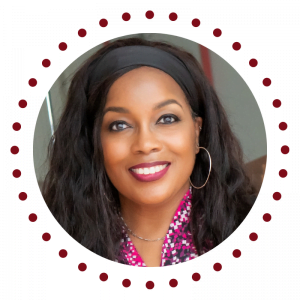
Want Karan to be Your Podcast Guest?
- Blended Workforces & the Gig Economy
- Critical Execution Tactics of High-performing Leaders
- Entrepreneurism & Leading Your Business

Want to be a Podcast Sponsor?
All sponsorships come with a featured spot on show notes pages.
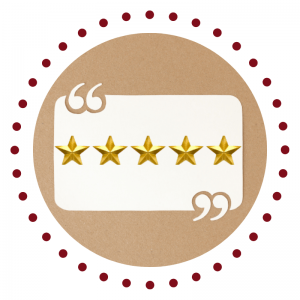
Like the Show? Please Leave a Review
If you like the show, it would mean the world to her if you left a quick review.
Your word is golden, so a HUGE thank you in advance!

#KeepInTouch
via our podcast alerts
Subscribe now to discover why thousands of monthly listeners who are passionate about doing their best work prioritize time each week to listen to the Blended Workforces @Work podcast.
#AboutSDL
#WhereToFindUs
MAILING
4480-H South Cobb Drive
PMB 219
Smyrna, GA 30080
PHYSICAL
2121 NewMarket Parkway
Ste. 108
Marietta, GA 30067
#ContactOptions
Customer Service Email:
service@shockinglydifferent.com
Call or Text:
770-384-1103
#Office Hours
MON-FRI
8:30 AM – 6:30 PM
Weekends By Appointment

